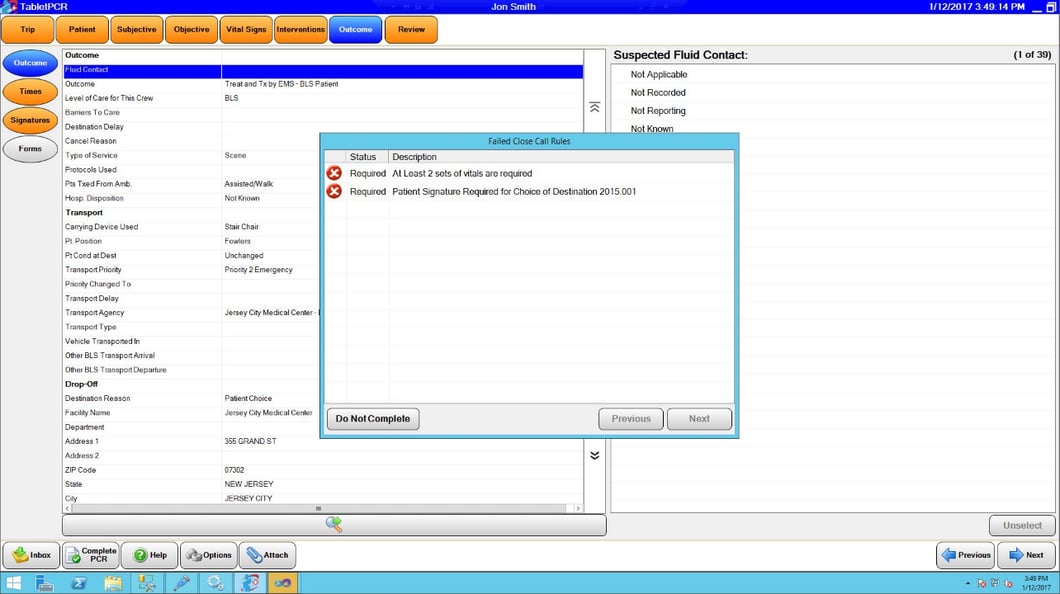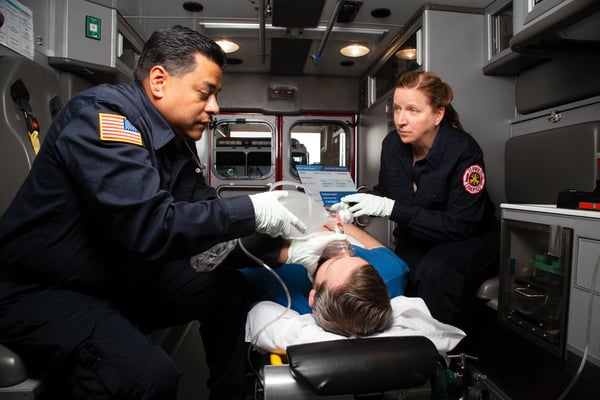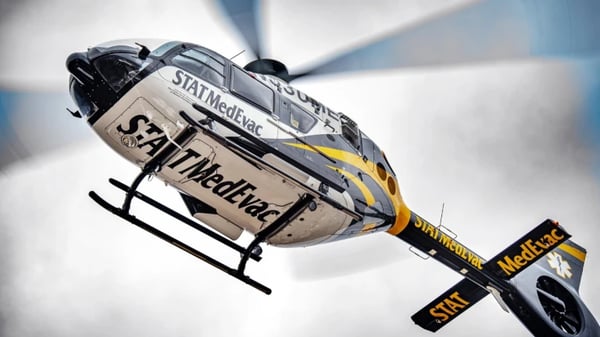News Alert: New ePCR Integration Simplifies EMS Data Management and Enables Better Care Coordination
Strengthen Hospital Relationships with ePCR: Part 3
In the last installment of the three-part series “Guarantee Your ePCR Works for you, Not Against You,” we asked Steven Cohen, the Assistant Director of EMS at the Jersey City Medical Center EMS Department in New Jersey, to discuss how the Jersey City Medical Center EMS Department has accommodated the needs of their healthcare partners with their patient care documentation system
Was this information valuable?

In the last installment of the three-part series “Guarantee Your ePCR Works for you, Not Against You,” we asked Steven Cohen, the Assistant Director of EMS at the Jersey City Medical Center EMS Department in New Jersey, to discuss how the Jersey City Medical Center EMS Department has accommodated the needs of their healthcare partners with their patient care documentation system. While having a customizable ePCR product is a great tool for helping his agency track their own clinical benchmark performance, they’ve been able to leverage its flexibility to share valued information with hospital partners.
Read Part 1: Guarantee Your ePCR Works for You, Not Against You
ZOLL: What unique data did hospitals demand that stressed your relationship with them?
Cohen: We operate in a competitive healthcare market. Being a hospital-based EMS system, we need to ensure that our patients are transported to the closest, most appropriate facility. In some situations, patients or their family may request that we bypass a closer hospital, despite it having appropriate certifications to treat that particular patient, for another hospital that is farther away. Taking patients to hospitals that are farther away based on patient or family has been a tough challenge for us. On occasion, we would receive a call from a hospital that we bypassed inquiring why we didn’t take a patient to them, which is why it’s imperative to us, and our hospital partners, to have proper documentation.
Read Part 2: Better Care and Billing Metrics Start with ePCR
ZOLL: What did you do fix this?
Cohen: Fortunately, we were able to configure our ePCR system to capture that data and then let crews know the closest facility prior to transporting the patient. It’s not as intuitive as you might think for a crew to always know which facility with the appropriate specialty services for their patients is the closest. To do this for our crews, we took our service area and broke it down into small grids (shown below). Each grid is affiliated with the closest facility and then given specialties. Now, when a call comes into the ePCR system, it shows that grid. Based on the lettering of that grid, the crew knows the closest appropriate facility and can select the destination facility.
ZOLL: What happens if the suggested facility isn’t ideal for the family?
Cohen: If a different facility is selected, the crew member has to pick a reason they are going to a different facility. If it’s a specialty center – STEMI, stroke or trauma – that’s an acceptable reason for a deviation. If it’s a matter of preference, then our ePCR prompts the crew to get a signature from whoever is making that choice acknowledging that they have chosen to go to a more distant hospital.
That gives us the documentation that we need to show that it was either the patient’s or their family’s choice.
ZOLL: Throughout this series, we’ve talked about how your ePCR works for you and not against you by helping improve outcome measures and billing effectiveness and strengthen your relationships with hospital partners. Any else you’d like to add?
Cohen: The flexibility of our ePCR has helped us improve our ability to track and improve the clinical measures that matter to our service. We value being able to document the quality of our community response for areas of high focus such as cardiac and respiratory distress patients. We also recognize the important role that ePCR plays in providing greater clarity to our billers as to exactly what happened with the patient from first encounter all the way to destination facility matters for clean claims. As a progressive EMS organization, we have been able to tighten our relationship with our hospital partners by sharing information that helps them understand what is going on with patients that we are transported within the region. On the whole, having an ePCR system that is able to accommodate our EMS service and our community ensures we are holding true to our mission.
Related Posts
How STAT MedEvac Connected Device, Software, and Data Technology To Enhance QA and Elevate Care
Podcast: 4 Ways ePCR Software Can Relieve EMS’ Biggest Headaches
ZOLL Pulse Blog
Subscribe to our blog and receive quality content that makes your job as an EMS & fire, hospital, or AR professional easier.
ZOLL Pulse Blog
Subscribe to our blog and receive quality content that makes your job as an EMS, fire, hospital, or AR professional easier.




